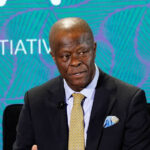The federal government has successfully electrified 15 federal universities and teaching hospitals with hybrid solar grids, boasting a combined capacity of 35.5 megawatts (mw).
This initiative aims to provide 24-hour electricity to 350,000 students and 50,000 lecturers, as announced by Mr. Abba Aliyu, Chief Executive Officer (CEO) and Managing Director (MD) of the Rural Electrification Agency (REA), at the recent Alliance for Rural Electrification Energy Access Forum held in Lagos.
The Nigeria Electrification Project, a $550 million initiative funded by the World Bank and the African Development Bank (AfDB), includes significant installations such as a 12mw solar grid at the University of Maiduguri and its teaching hospital.
Other institutions benefiting from this project include the University of Abuja, the Federal University, Yobe, and the Nigerian Defence Academy, among others. The projects are set to be officially launched by Honourable Minister of Power, Mr. Adebayo Adelabu, in the next two months.
In addition to the university projects, Mr. Aliyu highlighted that over 150 mini-grids had been deployed nationwide, including 100 50-kilowatt containerised mini-grids for health institutions. Furthermore, a 1mw interconnected mini-grid is planned to serve 6,000 households in Ondo State.
Addressing concerns about the national spread of REA projects, Mr. Aliyu emphasised the agency’s commitment to scaling up its efforts. He noted that despite the significant progress, the challenge remains vast, and substantial impact will only be evident when mini-grid deployments reach thousands.
President Bola Tinubu has also approved a $750 million World Bank loan to construct 1,200 mini-grids in rural communities, aiming to enhance energy access across Nigeria.




